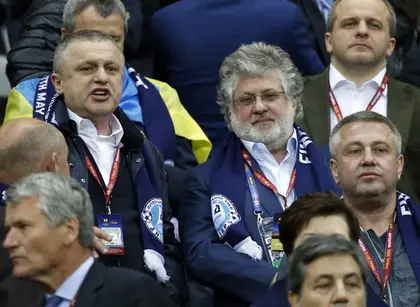A $350 million dispute between state-owned PrivatBank and the oligarchs Ihor and Hryhoriy Surkis is stuck bouncing between two courtrooms.
The Grand Chamber of the Supreme Court began to consider the case in June. But on Sept. 14, in a rare and unexpected move, it handed it back to the Civil Court of Cassation, another Supreme Court department.
JOIN US ON TELEGRAM
Follow our coverage of the war on the @Kyivpost_official.
PrivatBank has more chances to defeat the Surkises in the Grand Chamber, which is believed to have the most honest judges in Ukraine’s flawed justice system. The Grand Chamber has already sided with PrivatBank once in its litigation with the Surkises in June 2020.
One of the 21 judges of the Grand Chamber of the Supreme Court, Victor Prorok, suggested that the case might not be tried on the merits.
“I am afraid that with such an approach we will not see the case reaching the long-awaited stage of revision for a long time,” Prorok wrote on Facebook. “I, like a small number of colleagues, of course, have another opinion,” he wrote hinting that he may have been against bouncing the case back to the Civil Court of Cassation.
The Supreme Court has not yet made its decision public.
The Surkises are fighting to reclaim their deposits in PrivatBank, which were converted into the bank’s capital when it was nationalized in 2016. They scored a victory in 2017, when Pechersk District Court ordered PrivatBank to pay them $350 million.
The Cabinet of Ministers, which owns PrivatBank, appealed that decision. The Supreme Court agreed to examine the case in February.
“PrivatBank is concerned by the decision of the Grand Chamber of the Supreme Court and hopes for fair consideration of the case by the Civil Court of Cassation,” PrivatBank said in a statement on Sept. 15.
This decision poses a “risk of illegal collection of $350 million from the bank in favor of the foreign companies affiliated with the Surkis family.”
The Surkises are business partners of oligarchs Ihor Kolomoisky and Gennadiy Bogolyubov, who used to own PrivatBank until it was nationalized. The brothers had $350 million in deposits in the bank through six British companies registered to their wives in 2012.
When PrivatBank was found to have a $5.5 billion hole in its ledger due to rampant fraud, officials decided to nationalize the bank and bail in the deposits of Kolomoisky’s alleged accomplices, converting them into the bank’s capital.
Kolomoisky, Bogolyubov and the Surkises denied wrongdoing and launched numerous court cases to try to reclaim their assets. However, it later emerged that Surkises played a key role in embezzlement itself.
Read more: How a fake site leaked real documents in major Ukrainian court case
According to a leaked report by Kroll, a forensic firm hired by the National Bank of Ukraine to investigate PrivatBank, the Surkises’ companies were used for insider lending.
Their deposits were in fact loans that had been converted to deposits. To repay these loans, Surkises got new ones in a loan recycling scheme, the Kroll report says. The Surkis brothers denied the accusations.
In September 2020, the National Anti-Corruption Bureau launched an investigation into the brothers’ alleged involvement in the scheme.
You can also highlight the text and press Ctrl + Enter




